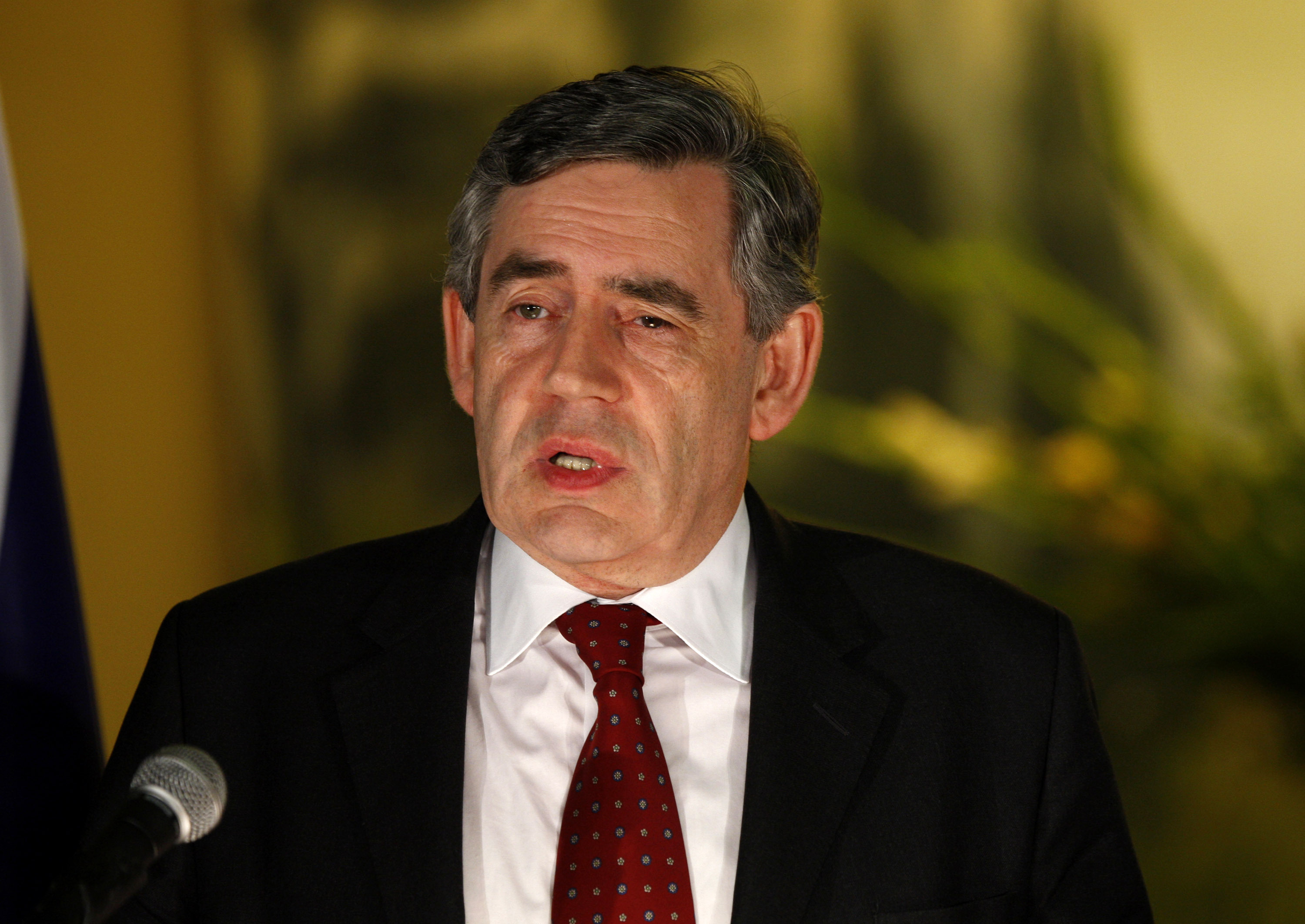 I have spent the past week in Tintagel, overlooking the castle thought by some to be the birthplace of King Arthur and perhaps even the true site of Camelot. It is one of the most astonishing views in England and you feel – because you are – on the edge of the world, looking out into the Atlantic and down through the centuries into a mythic past tantalisingly visible in the Cornish mist. Where better, far from Westminster, to think straight about the decline and fall of King Gordon – a doomed monarch whose plight needs a Mallory or Tennyson to do it full justice.
I have spent the past week in Tintagel, overlooking the castle thought by some to be the birthplace of King Arthur and perhaps even the true site of Camelot. It is one of the most astonishing views in England and you feel – because you are – on the edge of the world, looking out into the Atlantic and down through the centuries into a mythic past tantalisingly visible in the Cornish mist. Where better, far from Westminster, to think straight about the decline and fall of King Gordon – a doomed monarch whose plight needs a Mallory or Tennyson to do it full justice.
Truth to tell, I have returned to Westminster astonished by the understatement in the press of the depths of the PM’s predicament in the wake of Glasgow East. Too much of the coverage over the weekend focused on process, the technicalities of removing Mr Brown and the undoubted inertia (publicly at least) of the potential contenders. As Gordon himself might say, we need to step back and focus on the big picture, which – in this case – is painted in broad and savage brush strokes.
Consider what has happened to New Labour in little more than 11 years: the Blair-Brown Party (charisma meets fiscal rectitude) was elected in May 1997 with a landslide and a mandate that forced the Tories to the margins of politics until December 2005. Only when the Conservatives chose as their leader a man who styled himself the “heir to Blair” did they get back on the playing field. True blue Tories may hate this, and I can see why they would, but it is true nonetheless. William Hague was crushed in 2001. In spite of Iraq and everything else, Blair secured a third healthy victory in 2005 to achieve an aggregate of parliamentary majorities greater than Margaret Thatcher’s. And there were times during that remarkable decade when Labour looked quite simply impregnable.
Then, the party grew sick of Blair, or, rather, fearful of the consequences of keeping him. Having dislodged its most electorally successful leader in September 2006, Labour then made its fatal error, which was to anoint Mr Brown rather than to stage a true leadership contest. Such a race would not only have forced Gordon to raise his horizons, reveal more of himself, and learn new tricks; it would have compelled the party to examine itself no less rigorously and to ask where its future trajectory lay – the first opportunity to do so since Mr Blair’s election as leader 13 years before in 1994. Instead, Brown and Labour struck a shabby, silent deal: I won’t ask you, if you don’t ask me. If the voters do not know what post-Blair Labour stands for, it is no surprise. The party is not sure itself.
Stephen Carter, Mr Brown’s chief strategist, has pointed out to colleagues that the PM lacks an “emotional contract” with the public, and this is spot on. For a while after he entered Number Ten in June 2007, the voters liked what they saw, and thought the Man of Iron might also be the Man of Change. In fact, he has proven a poor tactician (the election-that-never-was, the 10p tax debacle, the fuel duty climbdown) and – much worse – quite incapable of responding quickly and with emotional intelligence to the personal implications for voters and their families of the economic downturn. For me, the game was up when Brown started telling us that we were actually very well off in comparison to our counterparts in other countries or in comparison to the Tory years. The Great Helmsman? More like the Tone-Deaf Statistician.
Part of the point of going away, as T.S. Eliot wrote, “is to arrive where we started / And know the place for the first time.” Back in Westminster today after a week’s break, I read Jackie Ashley’s Guardian column, declaring Game Over for her great hero, with genuine amazement. Et tu, Jackie? One by one, the Brownite cheerleaders are peeling off. The ultra-Blairites are out on manoeuvres. The silence of Cabinet dogs not barking is deafening. No seat is safe, no orthodoxy secure. Don’t be distracted by the minutiae, or the endless claims that nothing can happen during the summer (why?). Focus on the wood, not the trees. Rarely has politics been so fissile, so unstable, so thrillingly unpredictable.







Comments